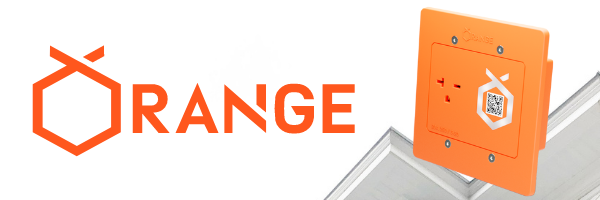Stop Rogue Spending Flat with Automated Software
 Rogue spending plagues organizations around the world. Your procurement procedures exist for good reasons, and negotiated rates with preferred suppliers save your company money and provide quality assurance. However, the information age resulted in Google, Amazon and other sites that make it easy to buy from unapproved eCommerce sources.
Rogue spending plagues organizations around the world. Your procurement procedures exist for good reasons, and negotiated rates with preferred suppliers save your company money and provide quality assurance. However, the information age resulted in Google, Amazon and other sites that make it easy to buy from unapproved eCommerce sources.
Raiven's Best Value Finder™ is a revolutionary new technology that allows customers to see comparable products and pricing from your preferred suppliers as they search for an item on an unapproved eCommerce website. With one click, it then allows them to add the item to the approved supplier's cart - bringing the purchaser back into compliance.
Rogue spend defined
The Institute of Supply Management (ISM) defines rogue spend, also called maverick or unmanaged spend, as employee purchases of a necessary product or service outside of your organization's defined process. It's essentially off-contract buying.
For example, suppose your company's procurement department negotiated a contract with three suppliers who provide building maintenance parts and materials. The procurement department made certain the three suppliers provided special discounts, free shipping and guaranteed inventory of the parts and materials that the company normally needs. A policy was then created that required employees to use one of these three suppliers for their purchases.
Rogue spend occurs when one of your employees disregards this policy and buys from a nonapproved source. This often results in your company paying a higher price, especially when shipping is included. Furthermore, since the procurement department qualified suppliers according to quality and dependability standards, rogue spending can result in lower quality products and missed delivery dates.
Most often, rogue purchases happen in the "tail spend" part of your company's purchasing. Tail spend includes the large numbers of low-dollar purchases in a wide variety of categories, like maintenance, repair and operations (MRO), office supplies and business essentials.
Larger purchases are often strategically sourced and highly visible, making it easy to enforce procurement policies. When it comes to hundreds or thousands of small purchases, detecting rogue spend and enforcing policies is a herculean task, so many organizations are simply forced to accept it.
Unfortunately, rogue spend often occurs even with the most robust procure-to-pay processes, especially in larger organizations. It happens because requesters make commitments to suppliers without an approved purchase order (PO). Work then starts or the product is delivered, forcing companies to generate POs after the fact.
Before automated software solutions, procurement departments suffered from poor reporting and limited visibility, which made oversight difficult to impossible. To determine the amount of rogue spend, procurement teams had to review contracts, spend reports and accounts payable invoices. All of these measures come too late to stop rogue spend.
When no software solutions are in place, enforcing compliance is so difficult that 29% of indirect spend is off-contract, and some companies' rogue spending is as high as 80%.
How Google, Amazon and other eCommerce websites contribute to rogue spend
In the old days, finding new suppliers took a lot of leg work. Purchasing agents and employees had to scour publications, ask for referrals and hit the phones to identify possible suppliers, with no guarantee of results. When companies provided lists of preferred suppliers, employees were motivated to use it. After all, how much time could they afford to spend searching for suppliers?
E-commerce brought a new paradigm where employees can search for an item on Amazon or Google and quickly see a choice of numerous suppliers. This makes it easy for employees to just buy from their preferred suppliers or whatever supplier is more convenient at the moment. However, for companies, this results in a larger tail spend without adequate due diligence for both quality and price.
Tail spend, on average, totals one-fifth of a company's spending. Eliminating just 5% of rogue spend from the tail brings enough cost savings to significantly impact the bottom line. But how can a supply manager accomplish this time-consuming activity with all his or her other responsibilities?
Purchasing compliance made easy
To compound the problem, allowing employees to use p-cards or credit cards is a blessing and a curse. The curse is they are free to shop wherever they like, and Amazon is frequently where they go. Because Amazon is not one of your approved suppliers, compliance has gotten even more difficult.
Instead of manually trying to keep employees in compliance, leverage technology like Raiven's to make it easy. Here's how it works: When an employee is searching on an unapproved website like Amazon, Raiven's Best Value Finder™ finds exact or comparable offerings from your approved suppliers, sliding these offerings onto the screen for the purchaser to consider. Then with one click, the item is redirected from Amazon to your preferred supplier's cart.
Raiven's technology also tracks the search patterns of your employees to see exactly where and what they are searching for. Knowing this information can give better insight into where employees initiate their searches and the types of products that are being bought rogue. Best Value Finder™ data thus helps make sure you are keeping your employees in compliance while also ensuring you are receiving the best pricing from suppliers.
Rogue spend has been a challenge for many years. Before automated capabilities, identifying rogue spend was like finding a needle in a haystack. For small purchases, it was hardly worth the effort. But those small purchases add up over time, and rogue spending costs money, can impact quality and results in unreliable suppliers in the chain.
Raiven's Best Value Finder™ provides a turnkey solution to rogue spending. If you're purchasing compliance is unruly, contact Raiven today for an automated solution that's easy.



